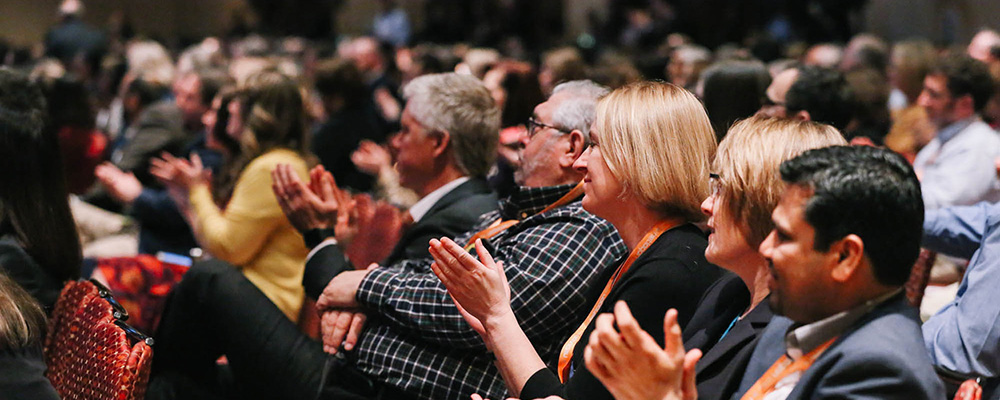
Innovation Debates: Where Insight Happens
With innovation comes opinions that spark debate. Listen to experts debate both sides of the most compelling issues in the testing industry today during the following Innovation Debates:

Testing as a Profession: Should We Be Certified and/or Self-Regulated?
Speakers: Susan Davis-Becker, ACS Ventures; Peter Mackey, Peterbridge Communications LLC; Stephen Horan, CFA Institute; Jerry Gorham, Ascend Learning LLC; Steve Sireci, University of Massachusetts
What are some arguments for/against creating certification programs for testing professionals (i.e., psychometricians, test developers or test administrators)? Issues will be addressed along these major themes of certification of professionals and steps toward self-regulation of the industry. Examples of questions that may be considered are: Is a PhD a sufficient qualification for a testing professional? Should the testing profession regulate itself as with other licensed or certified professions? Should we have a code of conduct? Is there consensus around a common core set of KSAs or competencies? Are we harming our industry by not certifying ourselves and allowing anyone with any degree to participate in this profession? What would the industry lose in changing from what has traditionally been an academic model to an explicit certification model? Would certification be overly burdensome for the profession?
The Debate Goes On: Differing Perspectives on Recertification and Maintenance of Certification
Speakers: Amin Saiar, PSI Services; Brett Foley, Alpine Testing Solutions; Andrew Dwyer, American Board of Pediatrics; Anjali Weber, Board of Pharmacy Specialties; Rory McCorkle, PSI Services LLC
Recertification practices differ widely across the measurement industry and have come under increased public scrutiny and opinions appear to have become increasingly entrenched. The session presenters will engage in a debate on issues related to recertification. The session moderator will begin with polling the audience on the following four questions, invite the debate team to discuss the questions, and close with repeat audience polling and final remarks.
- Should an assessment component be required for recertification?
- If used, should the recertification exam be the same as the initial certification exam or a different exam?
- Should continuing education be a requirement for recertification?
- Should recertification models differ by subgroup characteristics, such as years of experience, specialty area, or work setting?
Are We Testing our Kids Too Frequently?
Speakers: Amy Riker, NWEA; Dianne Henderson, Renaissance Learning
Frequent assessment of students in the K12 space has become a fairly common practice with call from multiple groups for change. Are we assessing children too frequently, and if so, how much is too much when considering the breadth of formative, interim, and summative assessments being administered to K12 students? What value do these exams provide to stakeholders (e.g., students, parents, teachers, administrators, policymakers)? Are they helping educators evaluate students’ needs and meaningfully act on the results, or are they interfering with the learning process? What alternatives would provide more effective assessment and learning for students?
Should We Use Technology and Statistics to End or Alter Testing Sessions When We Suspect Cheating or Item Theft?
Speakers: Lorin Mueller, Federation of State Boards of Physical Therapy; James Wollack, University of Wisconsin – Madison; Marc Weinstein, Marc J. Weinstein PLLC
Computer-based test delivery technology and quantitative methods can be combined to provide real-time information during testing about the probability that a test taker is cheating or stealing test content. Two experienced measurement experts will debate the following resolution: Test sponsors should discontinue or alter the testing sessions of test takers suspected of cheating or item theft based upon real-time information gleaned from test delivery technology and quantitative methods. The presenter in favor of the resolution will explain why and how such a process should be implemented, and the presenter against it will focus on the practical challenges to using real-time data to make wise decisions. An experienced assessment attorney will moderate the debate and ask probing questions. The audience will have an opportunity to vote on the resolution at the start of the debate, ask questions of the presenters and vote again at the end of the debate to determine the winner.
Register today